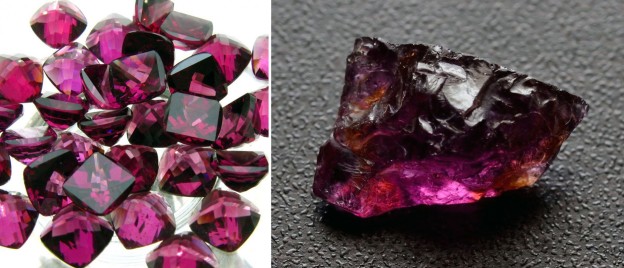Healing Crystal Rhodolite Meaning and Uses
First name
The Rhodolite derives its name from the Greek “rhodo” (pink) and “lithos” (stone) and was coined by George Fredrerick Kunz due to its resemblance to the mountain rhododendron (Rhododendron catawbiense).
Chemical composition of the Rhodolite
The Rhodolite belongs to the family of the Garnets, more specifically it is a mixture of two different types of Garnet: the Almandino and the Pyrope.
Removing the Rhodolite
Rhodolite is generally found as sedimentary rock or host metamorphic rocks. The most beautiful specimens are commonly extracted in Sri Lanka, Zimbabwe and in a relatively new deposit in the Kangala region of Tanzania. As of 1987 Rhodolites of intense raspberry color have been found in other regions of Tanzania such as Ruvuma, Mtwara, and Lindi.
History of the Rhodolite
Rhodolite was discovered in 1882 in Macon County, North Carolina and was named by renowned gem expert George Frederick Kunz, who described it as follows: “pale pink-red tending to purple as the color of certain roses and rhododendrons. “
Characteristics of the Rhodolite
The Rhodolite is very different from the classic red garnets since it comes in combinations of pink, red and purple. Of a unique beauty due to its purple tones and a high degree of transparency and brightness, the Rhodolite specimens show vivid tones enriched with violet reflections. It is a type II gem, that is, the Rhodolite is presented with some minor inclusions that can be visible to the naked eye, which if they do not compromise its beauty are absolutely tolerated.
Variety of the Rhodolite
Some varieties of Rhodolite are offered with commercial names that often cause confusion since they are not used regularly. Among the most famous varieties, we remember the “Rhodolite Raspberry”, named in that way for its beautiful color that resembles the fruit as well as the “Garnet Grape” that reminds the color of Merlot wine with its intense tones.
Care of the Rhodolite
The Rhodolite, like other Garnets, can be damaged due to strong temperature changes. Steam or ultrasonic cleaning should be avoided.

